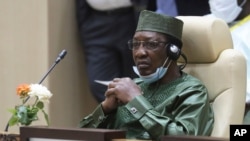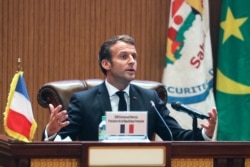International and regional powers agreed at talks on Tuesday to intensify a military campaign against Islamist militants in the West African Sahel region, with French President Emmanuel Macron saying victory over the jihadists was within grasp.
Militant attacks in the Sahel have increased over the last two years, especially in the tri-border region of Niger, Burkina Faso and Mali known as Liptako-Gourma, where local authorities have been overrun.
Mauritania hosted a meeting of the leaders of five Sahel nations plus France and Spain to plot future strategy in the scrubland south of the Sahara where since 2013 thousands of French troops have been helping countries counter insurgencies.
"The heads of state stressed the need to intensify the fight on all fronts by national and international forces against terrorist groups," the final communique said.
The so-called G-5 Sahel nations comprise Burkina Faso, Mali, Mauritania, Niger and Chad — all former French colonies. Spanish Prime Minister Pedro Sanchez also attended the summit, while other EU leaders joined by video.
"We are all convinced that victory is possible in the Sahel. We are finding our way there thanks to the efforts that have been made over the past six months," Macron said after the summit.
Ahead of the summit, a joint statement by the United Nations and a group of aid organizations painted a dark picture of the situation on the ground.
"The security situation in the Sahel countries has deteriorated considerably in recent months. Conflicts prevailing in the region are having unprecedented humanitarian consequences," it said.
The joint forces, led by France's 5,100 troops, have so far targeted the regional affiliate of Islamic State, concentrating military efforts on Liptako-Gourma.
French forces said this month that they had killed al Qaeda's North Africa commander Abdelmalek Droukdel. But the G-5 force has been hampered by a lack of funding, equipment and coordination.
France has long called for more help from its European allies for the mission, which it sees as essential to protecting the security of Europe's southern flank.










